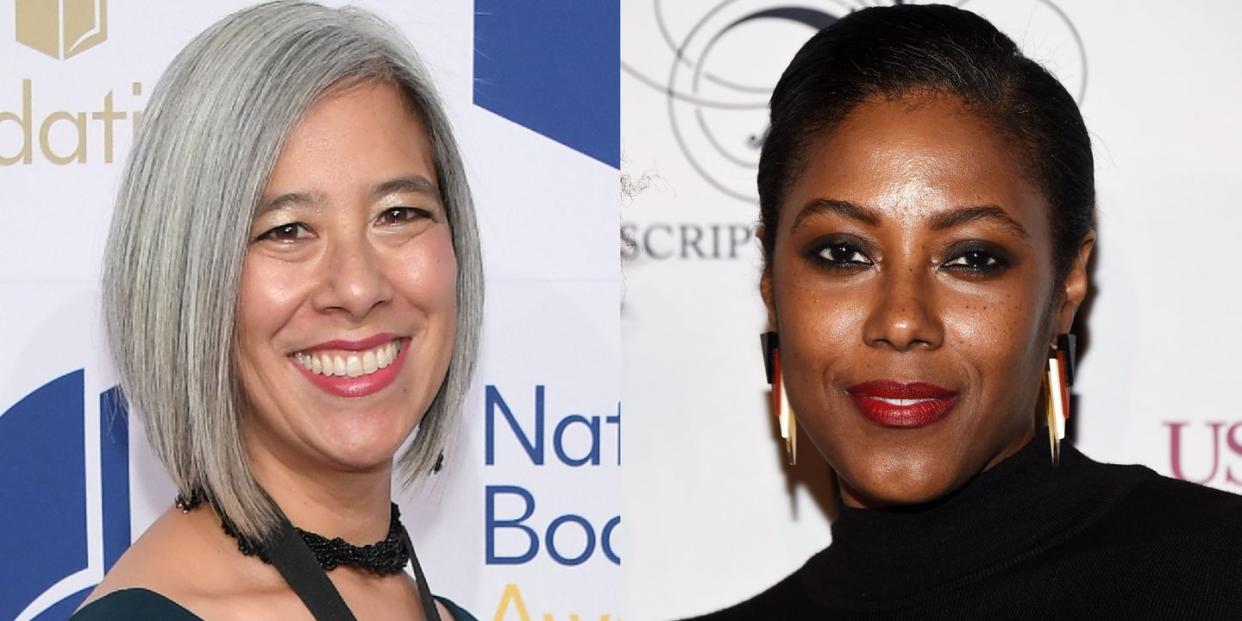The 2019 National Book Awards Prove a Once Insular Literary Institution Can Be Inclusive

“What was once insular is now unifying. What was once exclusive is now inclusive," said National Book Foundation Executive Director Lisa Lucas at the 70th National Book Awards on Wednesday night, speaking on how the literary institution has progressed throughout the decades.
Her rousing words were an apt metaphor for the ebullient night, which honored a diverse line-up of worthy writers. Perhaps nowhere was that spirit of progressive change more evident than in the acceptance speech of trailblazing gay writer Edmund White, recipient of the Distinguished Contribution to American Letters Award, who founded Gay Men’s Health Crisis during the early years of the AIDS epidemic. White reflected on being proclaimed “America’s Most Maligned Man” by the former Harpers & Queen Magazine (now Harpers Bazaar UK), saying, “To go from being the most maligned to a highly lauded writer in a mere half century is astonishing.”
In introducing White, his friend of many decades, director John Waters took a cheekier view of White’s extraordinary life in letters, referencing White’s dust-ups with public intellectuals.
“He's an AIDS activist, an AIDS survivor and he still loves sex," Waters said. "He's written so many top-notch memoirs that My Struggle seems stingy in the details department. He's pissed off Susan Sontag and Gore Vidal, and the world is a better place for it."
So too did host LeVar Burton, actor and longtime literary advocate, take the long view of history’s slow slog toward positive change.
"My mother graduated from college at the age of 17, the first person in her family to go to college,” Burton said in his opening remarks. “For me to be a well-known literary advocate in this nation, a place where only a scant few generations ago it would have been illegal for me to read--it's no small thing.”
Even as the awards turned their gaze to a more inclusive future, honorees looked with deep gratitude to their pasts. Sarah M. Broom, who won the nonfiction category with The Yellow House, her wrenching, unforgettable memoir spanning 100 years of her family’s history in New Orleans, spoke powerfully about her mother, whom she described as “a poet in her own right.”
"As a child, I watched her every move, seeing her eyes fall upon every word everywhere—encountered in the grocery store, on a bus, pamphlets, the package labels, my high school textbooks… ‘Make me know,’ my mother was always saying, in between raising twelve humans," Broom said.
As is the case with any distinguished occasion of public speech-ifying, the Trump administration wasn’t far from the proceedings. In presenting the award for the translated literature category to László Krasznahorkai, author of Baron Wenckheim’s Homecoming, jury chair Idra Novey referred to the recent explosion of translated literature as, “a welcome rebuke to the brutal xenophobic crimes occurring daily under this administration.” Meanwhile, Burton cracked a political joke, claiming that there would be a halftime show consisting of “Kanye West and Donald Trump sitting together and willfully not reading.”
Even on the biggest night in books, still there were reminders that publishing remains an imperfect, challenged industry. It’s threatened at every turn by the crushing influence of Amazon; it’s hamstrung by its own inability to create fair working conditions for its employees; it’s dangerously in thrall to conservative hatemongering. Susan Choi, winner in the fiction category for Trust Exercise, an audacious novel about performing arts students, referred to how difficult it is to build a profitable life in literature, saying, “I never thought that I would one day actually be able to lead a life that was centered on books and writing.”
The National Book Awards celebrated what it celebrates every year: how books are the heart and soul of both public and private life. Even in a time of disruption and strife, reading and writing are essential human activities. Broom said it best in her acceptance speech: “Somehow and still, even with and through it all, the work stands. Nothing can stand in for it, I have learned, because the work is the work is the work.”
You Might Also Like

